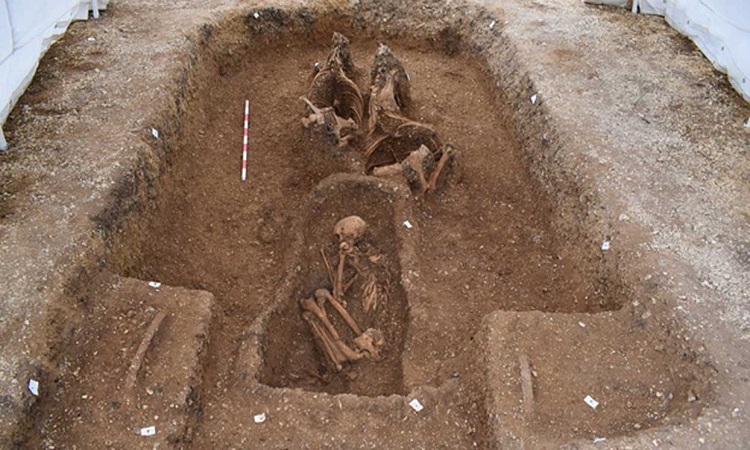Archaeologists have uncovered an ancient city that represented a great center of one of the future first great civilizations in Africa. This is Beta Samati, part of the Kingdom of Aksum.
A new ancient city
The Kingdom of Axum was a very important state in the Horn of Africa. Covering the north of present-day Ethiopia, Djibouti and Eritrea and part of the west of the Arabian Peninsula, this kingdom developed around the city of Aksum from the 4th century BC. From the 9th century AD, the name of Ethiopia began to surface.
In a December 10, 2019 publication in Antiquity, archaeologist Michael Harrower of Johns Hopkins University (United States) released his latest research. These relate to the excavations between 2011 to 2016 of an ancient city named Beta Samati.
“People know a lot about ancient Egypt, ancient Greece and ancient Rome … But they don’t know that the Aksumite civilization was one of the most powerful civilizations in the world and one of the earliest,” explained Michael Harrower in an article by LiveScience (https://www.livescience.com/buried-christian-church-lost-kingdom-ethiopia.html).
Discoveries that can change History
Through the use of carbon-14 dating at the remains, the researchers were able to assess the age of the site. According to them, Beta Samati was inhabited during a period between 771 BC and 645 AD. In other words, this city was built by pre-Aksumite civilizations and then became part of the Kingdom of Aksum. The site contained many objects testifying to domestic and craft activities, but also commercial. In addition, some objects from other countries have been updated. This notably made it possible to understand that the Aksoumites traded with the Roman Empire and other civilizations.
Archaeologists have also discovered the ruins of a religious building. It could well be a Roman-style basilica, having served as a Christian church. This is a new hypothesis concerning the arrival of Christianity in the Horn of Africa. Indeed, history explains that the kingdom of Aksum had adopted a polytheistic religion before the 4th century. The conversion of the country was done with King Ezana, himself converted by a missionary. So this part of Ethiopian history could be called into question. Research continues and archaeologists wish to return to the site in the near future.




